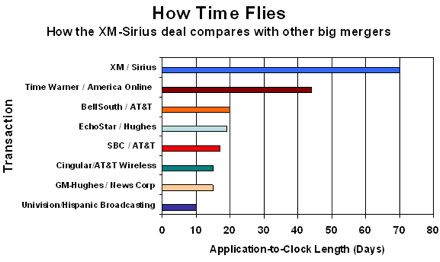Here are my thoughts on Solveig’s comments:
The focus on software patents in the oped is, however, rather misleading; the problems of the patent system are broader than that, affecting tech in general and not software in particular. Furthermore, these problems are not inherent in any patent system, but are peculiar to our system, because of problems with the way it is administered. Note that in Lee’s 1991 quote from Gates, Gates is concerned not that software patents are inherently bad, but that the way they have been implemented has not worked out.
It’s certainly true that the problems with the patent system extend beyond software patents. But I don’t think this is a fair reading of Gates’s memo. Later in the same paragraph I cited in my article, he wrote:
A recent paper from the League for Programming Freedom
(available from the Legal department) explains some problems with the
way patents are applied to software.
He was almost certainly referring to this paper, published about 3 months earlier. The first paragraph of that paper is:
Continue reading →
I thank Solveig and Greg for their thoughtful comments on my software patents op-ed. A few quick responses. First, from Greg:
based on journal literature, industry gross sales, published books, and more consumer crap to fill garbage dumps with, there is ZERO evidence that technology is being stifled…
I have trouble putting much stock into studies that try to find a statistical correlation between software patents and innovation. It’s extremely difficult to come up with good metric for the innovativeness of an industry given that, by definition, innovation happens when you do something people don’t expect. Moreover, it’s not clear to me what the appropriate baseline should be in these studies. Even if you came up with an objective measure of how innovative the software industry is at any given time, I don’t know how you’d figure out what the relevant counterfactual is. You might be able to learn something via cross-country comparisons, but even these comparisons are pretty dubious given the globalized nature of the software industry.
But while macro-level statistics aren’t very illuminating, I think the anecdotal evidence is overwhelming. I think Greg’s rejoinder here kind of proves my point:
Continue reading →
TLF co-blogger Tim Lee had an oped in the New York Times on software patents; Greg Aharonian offers his usual pointed response. Am thinking of inviting them both to lunch.
Continue reading →
The FCC is famous, even among its regulatory bureaucracy peers, for its mollusk-like pace of action. Not that it hasn’t tried to improve. For instance, a few years ago it put into place a 180-day “shot clock” for reviewing mergers — giving itself six months to give an up-or-down decision on transactions. It was a nice idea. It came with a few loopholes, however — for instance, nothing says when the vaunted “shot clock” must begin. 
(chart from Engadget, numbers as of May 31).
The folks at Sirius and XM Radio have learned this the hard way. Last Friday, the FCC started its 180-day clock — launching a proceeding to review their merger, 78 (seventy-eight) days after the firms submitted their merger plans. That’s a record.
No official word on why the mergers was left hanging so long. Its certainly been a controversial deal — surrounded by quite a bit of uncertainty (bizarrely, even on whether the FCC has a rule banning the merger). But that hardly justifies a 78-day delay: its the controversial and uncertain deals that need a deadline, not the easy ones.
Anyway, for now, the clock is ticking, giving the FCC some 176 more days to decide. Unless it decides to stop the clock again.
June is “National Internet Safety Month,” and to coincide with it I have been posting a series essays on various aspects of online safety. (Here are parts 1, 2, 3, 4, 5, and 6). In this installment, I will be discussing the importance of online safety education and media literacy efforts.
Education is a vital part of parental controls and online child protection efforts. In fact, if there is one point I try to get across in my new book, “Parental Controls and Online Child Safety: A Survey of Tools and Methods” it is that, regardless of how robust they might be today, parental control tools and rating systems are no substitute for education–of both children and parents. The best answer to the problem of unwanted media exposure is for parents to rely on a mix of technological controls, informal household media rules, and, most importantly, education and media literacy efforts. And government can play an important role by helping educate and empower parents and children to help prepare them for our new media environment.
Continue reading →
I can’t work up much sympathy for the defendant in this particular case, but the continued abuse of the patent system is still worrying. Mike has the goods:
A patent holding company named Geomas has the rights to a broad and obvious patent on location-based search that just about every local search or online yellow pages site probably violates. The company has apparently raised $20 million from some of the growing list of investment firms drooling over the innovation-killing patent-hoarding lawsuit rewards and is kicking things off by suing Verizon for daring to put its phone book online in the form of Superpages.com. This is the type of patent that should be tossed out following the Supreme Court’s Teleflex ruling, but for now it’s wasting plenty of time and money in everyone’s favorite courthouse for patent hoarding lawsuits in Marshall, Texas. While the article notes that it may have been “new” to think about creating location-based search when the patent was filed, that doesn’t account for whether or not it was an obvious next-step. Does anyone actually believe that without this patent Verizon wouldn’t have thought to put its yellow pages solution online or that Google wouldn’t think of creating a local search tool? That seems difficult to believe.
Deven Desai wonders if copyrights might be just as harmful to innovation in the software industry as patents:
It seems to me that copyright with its rather long term and (as Mr. Lee acknowledges) the ease with which one can obtain copyright protection could have as much if not more detrimental effect than the software patents to which he is opposed. I would offer Dan Burk and Mark Lemley’s Designing Optimal Software Patents which argues “Optimal software patent doctrine would constrain scope to deal with patent thicket while lowering the non-obviousness standard to validate more issued software patents” as a place to begin investigating this question but also welcome input about this debate.
I’ve actually read the Burk/Lemley paper and have been meaning to write about it for some time. But I don’t have time to dig into that now, so let me instead just quote an excellent response from Michael Chermside:
Continue reading →
 Ever since the “Unlawful Internet Gambling Enforcement Act” passed during the last session of Congress, Rep. Barney Frank has been pushing to repeal it. Good for him. It’s a silly law for reasons Radley Balko of Reason magazine pointed out during testimony at a hearing Rep. Frank hosted last Friday. The hearing was held by the House Financial Services Committee, which Rep. Frank chairs, and it was entitled: “Can Internet Gambling Be Effectively Regulated to Protect Consumers and the Payments System?” In his testimony, Balko, a former colleague of mine at the Cato Institute, made the moral case against the law:
Ever since the “Unlawful Internet Gambling Enforcement Act” passed during the last session of Congress, Rep. Barney Frank has been pushing to repeal it. Good for him. It’s a silly law for reasons Radley Balko of Reason magazine pointed out during testimony at a hearing Rep. Frank hosted last Friday. The hearing was held by the House Financial Services Committee, which Rep. Frank chairs, and it was entitled: “Can Internet Gambling Be Effectively Regulated to Protect Consumers and the Payments System?” In his testimony, Balko, a former colleague of mine at the Cato Institute, made the moral case against the law:
What Americans do in their own homes with their own money on their own time is none of the federal government’s business. Take online poker, by far the most popular form of online gambling. Poker has enjoyed a surge in popularity over the last several years. The game is about as mainstream and uniquely American as baseball. Poker evolved from similar card games in the early 1800s, then flourished in popularity on Mississippi’s riverboats, winning over such iconic American aficionados as Mark Twain.
Today, most daily newspapers have a poker column, including the New York Times. The game saturates cable television. Until recently, even several of the Supreme Court justices held a monthly poker game. Online poker is merely a new evolution of the game, similar to the way Civil War poker games introduced the straight, and gave us variations like draw and stud poker. The Internet merely removes the geographic barrier preventing those who love the game from finding opponents of similar skill who are willing to wager similar amounts of money.
Continue reading →
Peter Suderman of National Review Online has an excellent piece up this morning on the 2nd Circuit’s slap-down of the FCC on indecency. He argued that even conservatives — especially conservatives — should be concerned about FCC powers to regulate speech:
..from a conservative point of view…FCC regulation of broadcast speech creates exactly the sort of centralized, out-of-touch control mechanism that conservatives should want to avoid. One of the two measures the FCC is supposed to use when deciding whether or not speech is indecent is whether the broadcast is “patently offensive as measured by contemporary community standards for the broadcast medium.” Does anyone really think the FCC is equipped to enforce “community standards” from its coastal perch in Washington? It’s like some Bizzaro-world notion of local governance: putting a single federal agency in charge of “community standards” for a large, diverse country.
Worth reading. (Content warning: contains words “heck” and “asparagus.”)
Fred Von Lohman’s article in the Post chides a group of Congressmen for expecting universities to enforce copyright by fining or expelling students, or by installing filtering software. He urges instead that the university collect monies to pay the music industry for a blanket license for unlimited downloading, as they do for software. At least, it is not a compulsory license. And it seems to be a a reasonably practicable solution at one level.
(One practical problem: does the license transfer the rights in the sound recordings only? Or the rights of the composers and such as well? Licenses for music distribution are notoriously hard to obtain because of this fragmentation issue. Set it aside for now).
But note one key element on which the scheme relies–in order to have any incentive to negotiate for a license,
Continue reading →



 The Technology Liberation Front is the tech policy blog dedicated to keeping politicians' hands off the 'net and everything else related to technology.
The Technology Liberation Front is the tech policy blog dedicated to keeping politicians' hands off the 'net and everything else related to technology.